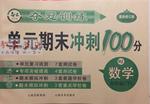题目内容
The driver will be stopped at once if he or she is found _______ over the limited speed.
A. drive B. driving
C. to drive D. driven
B
【解析】
试题解析:句意:如果一位司机被发现超速驾驶,他或她将会被立即阻止。Findsbdoing意为:发现某人正在做某事。故选B。
考点:考查非谓语动词

练习册系列答案
 夺冠训练单元期末冲刺100分系列答案
夺冠训练单元期末冲刺100分系列答案 新思维小冠军100分作业本系列答案
新思维小冠军100分作业本系列答案 名师指导一卷通系列答案
名师指导一卷通系列答案
相关题目